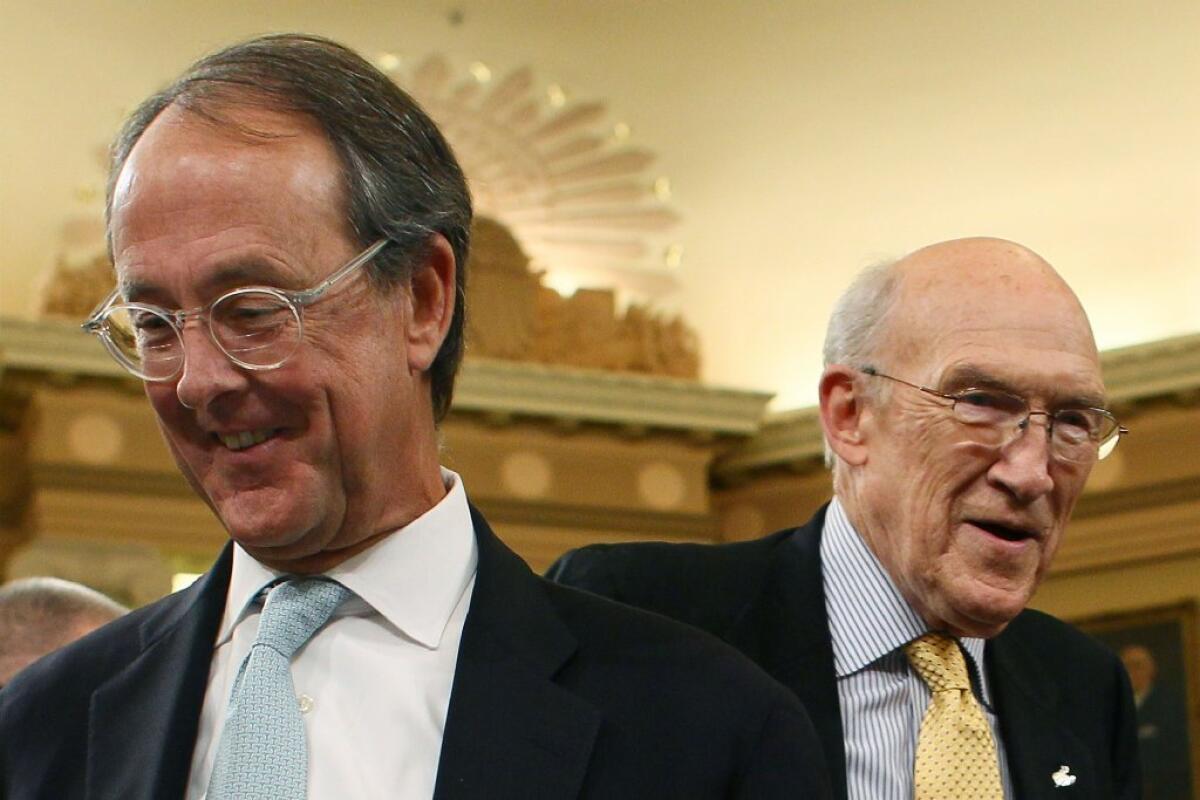False equivalency from Fix the Debt

You can always identify true ideologues -- their pitch never changes, no matter the weather, political or otherwise. That’s the case with Fix the Debt, a lobby group for deficit hawks that’s connected umbilically to hedge fund billionaire Peter G. Peterson.
As the government shutdown began Tuesday, Fix the Debt issued a call for a renewed focus on “the critical issues of entitlement reform, tax reform, and the nation’s unsustainable debt.”
See what they did there? At the moment the U.S. government effectively went out of business, they called for cuts in Social Security and Medicare. (That’s the translation from DC-speak of “entitlement reform.”)
To be fair, the group’s statement called the government shutdown “shameful” and warned against the “disastrous economic consequences” of failing to raise the federal debt ceiling.
But it also wondered why the “nation’s leaders are unable to work together.” Fix the Debt fashions itself as a bipartisan organization, but this is carrying bipartisanship a little far, since it’s the GOP that’s demanding conditions to end the shutdown that they know can’t be met.
Who is Fix the Debt? It’s a purportedly bipartisan pressure group, but its leadership is heavily stocked from the potentate wing of both parties -- listed as its Democratic co-founder is Erskine Bowles, a director of the investment bank Morgan Stanley.
It’s an arm of the Committee for a Responsible Budget, which is funded by the Peter G. Peterson Foundation. Peterson is an influential billionaire whose distaste for Social Security and Medicare as they exist today is a byword, as we reported last year. Michael Peterson, his son, is on Fix the Debt’s steering committee.
In reality, Fix the Debt has been getting its way, to the misfortune of millions of Americans who depend on the federal government for sustenance in bad economic times, like these.
Thanks partially to the sequester -- the product of a debt-cutting deal in line with the organization’s goals -- the federal deficit has fallen from 10% of gross domestic product to 4% since 2009. But one reason House Republicans have been so intent on shutting down the government is because they think it’s still going up, in part because of the unrelenting fear-mongering of organizations like, yes, Fix the Debt.
What this group and others like it never seem to acknowledge is that the largest factor in reducing government deficits and debt levels is economic growth. Policies like the sequester and the shutdown stifle economic growth. Shouldn’t they be connecting the dots?
More to Read
Start your day right
Sign up for Essential California for news, features and recommendations from the L.A. Times and beyond in your inbox six days a week.
You may occasionally receive promotional content from the Los Angeles Times.







